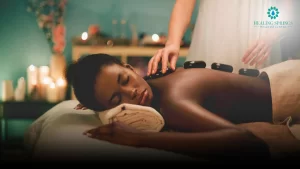Anxiety can feel like an unwelcome guest that refuses to leave. Your heart races, your mind spirals, and your body tenses up as if preparing for battle. But here’s the good news, you have the power to hack your nervous system and regain control. With the right tools and techniques, you can manage anxiety effectively and reclaim your peace of mind. In this guide, we’ll explore practical anxiety hacks that help soothe your mind and body, allowing you to move through life with greater ease.
Understanding Your Body’s Alarm System
Before diving into specific anxiety hacks, let’s understand what’s happening during moments of high anxiety. Your body’s fight-or-flight response—a primitive survival mechanism—kicks into high gear, flooding your system with stress hormones. While this response was perfect for our ancestors facing predators, it’s less helpful when triggered by work deadlines or social situations.
The key to hacking anxiety is recognizing this mismatch and teaching your nervous system new responses. Here’s how to do exactly that:
Immediate Anxiety Hacks for Crisis Moments
When anxiety strikes hard and fast, try these science-backed techniques to regain control:
1. The 4-7-8 Breathing Technique
This powerful breathing pattern acts like a natural tranquilizer for your nervous system:
- Inhale quietly through your nose for 4 seconds
- Hold your breath for 7 seconds
- Exhale completely through your mouth for 8 seconds, making a whooshing sound
- Repeat 3-4 times
Why it works: This technique forces your body to take in more oxygen while regulating your breathing pattern, triggering your parasympathetic nervous system (the “rest and digest” response).
2. Temperature Change Hack
When panic strikes, temperature can be a powerful reset button:
- Hold ice in your hands or place a cold pack on your forehead
- Alternatively, splash cold water on your face
- For some, warmth works better—try a warm drink or heating pad
Why it works: Temperature changes, especially cold exposure, activate your vagus nerve, which helps regulate your stress response and can quickly reduce anxiety symptoms.
Daily Practices to Hack Your Anxiety Long-Term
While emergency techniques are essential, the most powerful anxiety hacks are the ones you practice regularly:
1. Strategic Caffeine Management
That morning coffee might be sabotaging your anxiety levels:
- Track your caffeine intake and anxiety levels for a week
- Consider cutting back gradually rather than cold-turkey
- Try switching to green tea, which contains L-theanine (a natural anxiety reducer)
- Implement a caffeine curfew (no caffeine after 2 PM)
Why it works: Caffeine increases adrenaline production and blocks adenosine (a calming neurotransmitter), potentially mimicking or worsening anxiety symptoms.
2. Morning Movement Ritual
Starting your day with just 10 minutes of movement can significantly reduce anxiety:
- Simple yoga stretches
- Gentle walking, even around your home
- Dancing to uplifting music
- Tai chi or qigong movements
Why it works: Exercise reduces stress hormones while increasing endorphins and BDNF (brain-derived neurotrophic factor), a protein that improves neural health and combats anxiety.
3. Digital Sunset Protocol
Your screens might be keeping your nervous system on high alert:
- Set a “digital sunset” time (ideally 90 minutes before bed)
- Use blue-light blocking glasses if evening screen use is unavoidable
- Create a tech-free wind-down ritual (bath, book, meditation)
Why it works: Blue light suppresses melatonin production and can increase cortisol, while constant notifications keep your nervous system in an alert state.
Nutritional Hacks for Anxiety Management
What you eat significantly impacts your body’s ability to manage anxiety:
1. Strategic Magnesium Boosting
Many of us are deficient in this crucial mineral for nervous system function:
- Add magnesium-rich foods like dark chocolate, avocados, nuts, and leafy greens
- Consider a high-quality magnesium glycinate supplement (consult your healthcare provider first)
- Try magnesium-rich Epsom salt baths before bed
Why it works: Magnesium regulates neurotransmitters, helps manage stress hormones, and supports GABA function (your brain’s main inhibitory neurotransmitter).
2. Blood Sugar Stabilization
The blood sugar roller coaster can mimic and trigger anxiety:
- Never skip meals, especially breakfast
- Pair carbohydrates with protein and healthy fats
- Keep emergency snacks handy (nuts, cheese sticks, hard-boiled eggs)
- Consider eating smaller, more frequent meals
Why it works: Blood sugar crashes trigger adrenaline and cortisol release—the same hormones involved in anxiety responses.
Social Connection as an Anxiety Hack
Your relationships can be powerful tools against anxiety:
1. The 30-Second Hug
Physical touch releases powerful anti-anxiety chemicals:
- Embrace a trusted person for at least 30 seconds
- If human contact isn’t available, hugging a pet works too
- For those without either option, self-hugging (crossing arms and squeezing) provides some benefits
Why it works: Extended hugs release oxytocin, reduce cortisol, and activate your parasympathetic nervous system.
Herbal Allies for Anxiety Management
Nature provides several compounds that can help manage anxiety:
1. Adaptogenic Herbs
These special plants help your body adapt to stress:
- Ashwagandha: Often considered the strongest herb for anxiety, this ancient adaptogen helps regulate stress hormones
- Rhodiola Rosea: Particularly helpful for anxiety with fatigue
- Holy Basil (Tulsi): Calming while promoting clarity and focus
Important note: Consult with a healthcare provider before starting any herbal supplement, especially if you take medications.
2. CBD Oil Exploration
CBD (cannabidiol) has gained significant attention for anxiety management:
- Start with a low dose and gradually increase if needed
- Look for full-spectrum products from reputable companies
- Keep a journal to track effects and optimal dosing
Why it works: CBD interacts with your endocannabinoid system, which plays a role in regulating stress responses and emotional processing. Research suggests it may reduce anxiety by affecting serotonin signals in the brain.
When to Seek Professional Support
While these hacks can be tremendously helpful, sometimes you need additional support:
- If anxiety significantly impacts your daily functioning
- If you experience panic attacks that don’t respond to self-help techniques
- If anxiety is accompanied by depression or thoughts of self-harm
- If you find yourself using alcohol or substances to manage anxiety
Professional treatment options might include therapy (particularly cognitive-behavioral therapy), medication, or a combination approach.
Taking Back Control Starts Now
Remember that hacking your anxiety isn’t about eliminating it completely—it’s about developing a personalized toolkit that helps you respond rather than react. Start with just one or two techniques that resonate with you, practice them consistently, and gradually expand your anti-anxiety deck.
Note: This article is for informational purposes only and is not a substitute for professional medical advice. For specific medical advice, please consult with our qualified anxiety specialist.
FAQ: Your Top Anxiety Questions Answered
Q: How do you deal with extreme anxiety?
A: Extreme anxiety responds best to a multi-faceted approach: immediate physical techniques (deep breathing, cold exposure), professional support, regular exercise, and possibly medication. During an extreme episode, focus first on physical calming techniques before addressing thoughts.
Q: What to drink to calm nerves?
A: Several beverages can help calm an anxious nervous system. Chamomile tea contains apigenin, which binds to the same brain receptors as anti-anxiety medications. Valerian root tea promotes relaxation and sleep. Lemon balm tea has been shown to reduce anxiety and improve mood. Warm milk contains tryptophan, which converts to serotonin. Even plain water helps, as dehydration can worsen anxiety symptoms.
Q: How do I shut my mind off from anxiety?
A: Complete “shut off” isn’t realistic or necessary. Instead, try mindfulness practices that create space between you and your thoughts, “brain dumping” anxious thoughts onto paper, engaging in fully absorbing activities (often called “flow states”), bilateral stimulation (like alternate-nostril breathing or walking), or audiobooks and podcasts that occupy the “thinking mind.”
Q: What to do when anxiety becomes unbearable?
A: When anxiety reaches overwhelming levels, focus first on physical safety and basic needs. Implement immediate grounding techniques like the 5-4-3-2-1 method. Reach out to a trusted person or crisis line. Remember this feeling will pass, even if it doesn’t feel like it. After the crisis passes, consult a mental health professional to develop a comprehensive plan.
Q: How to stop panic attacks forever?
A: While completely eliminating panic attacks isn’t always possible, you can significantly reduce their frequency and intensity through regular practice of breathing techniques, cognitive-behavioral therapy (particularly exposure therapy), understanding and addressing your unique triggers, regular exercise and stress management, and medication when appropriate (consult a healthcare provider).
Q: Which anxiety hack will you try first?
A: Everyone’s anxiety is unique, so the most effective hack varies from person to person. Consider starting with the simplest techniques like the 4-7-8 breathing method or the temperature change hack. Then gradually incorporate longer-term strategies like caffeine management or morning movement. The key is consistency, even small daily practices can lead to significant anxiety reduction over time.




